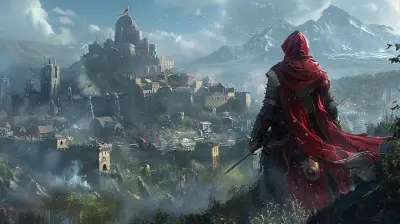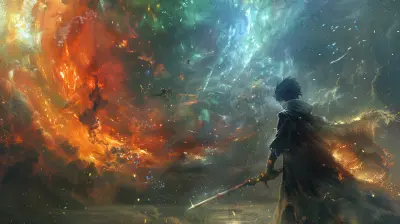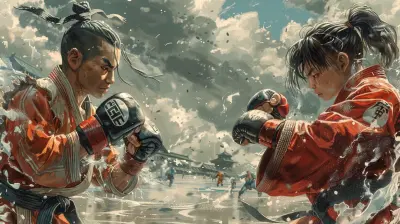How Alchemy and Crafting Have Become Staple Mechanics in JRPGs
17 April 2025
If you're a fan of Japanese Role-Playing Games (JRPGs), you've probably noticed something increasingly common over the years: alchemy and crafting mechanics. These features have gone from niche to essential, and we can’t imagine modern JRPGs without them. But how did we get here? Why are we spending hours gathering rare flowers, melting ores, and combining obscure ingredients in a cauldron just to make that perfect potion or legendary weapon? Let's dive into the magical world of alchemy and crafting in JRPGs and uncover why these systems have become such a big deal.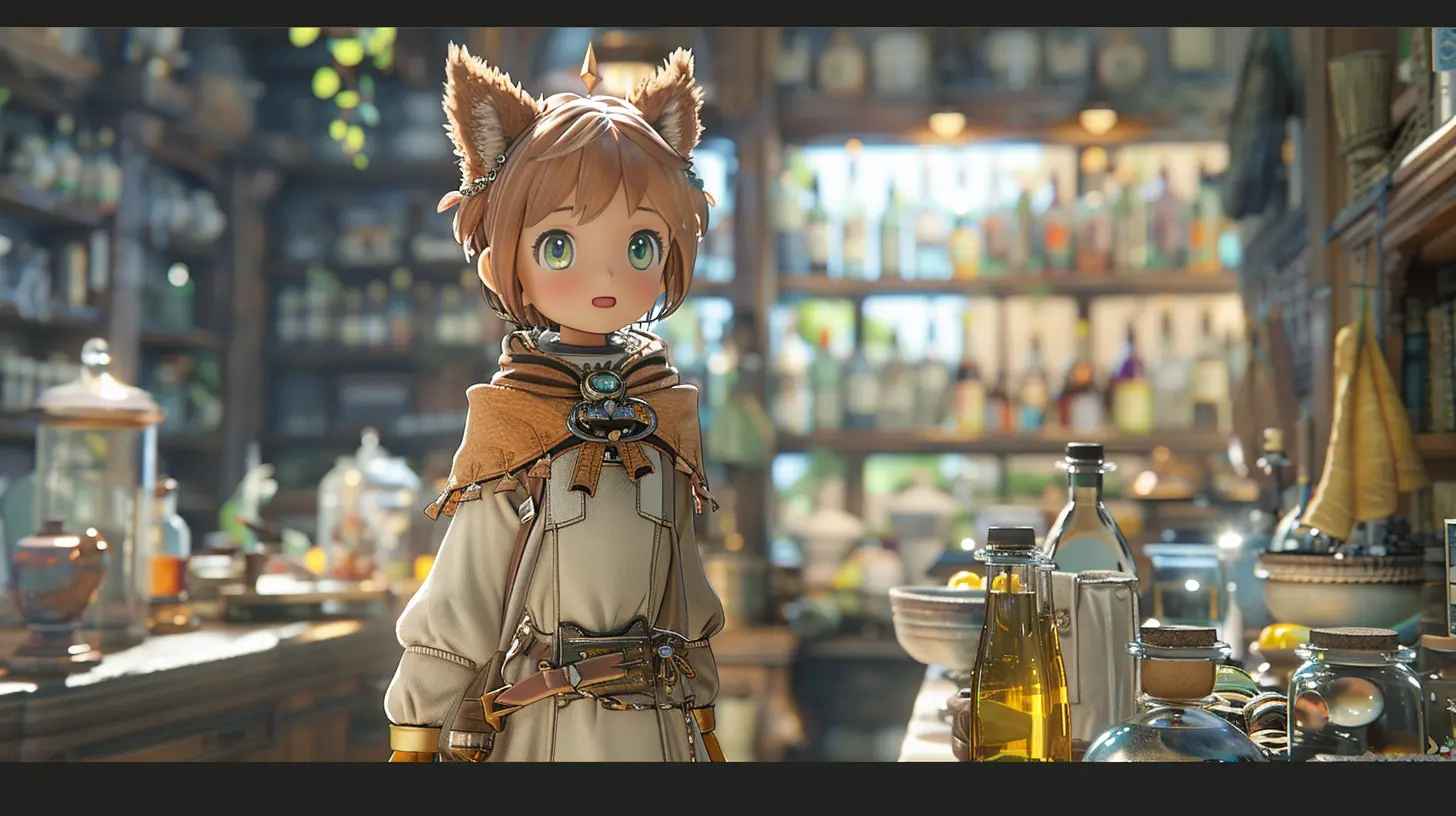
The Roots of Alchemy and Crafting in JRPGs
To understand why alchemy and crafting are so ingrained in JRPGs today, we’ve got to take a little journey back in time. Back in the 90s, JRPGs were mostly about epic stories, turn-based battles, and grinding for levels. Sure, there might’ve been a shop where you could buy or upgrade equipment, but there wasn’t much depth to it. Then came a little game-changer called "Atelier", which was released by Gust in 1997, and boy, did it shake things up!The Atelier series pretty much laid the foundation for alchemy mechanics in games. Unlike other JRPGs of the time, where the focus was on saving the world, Atelier zoomed in on crafting and experimenting with items. You didn’t just fight monsters; you gathered materials and combined them to create powerful weapons, potions, and other tools. It was fresh, creative, and frankly, addictive. Players loved the idea of not just finding the best gear but actually making it.
This trailblazing series proved that crafting could bring its own unique sense of accomplishment, and soon, other developers were taking notes.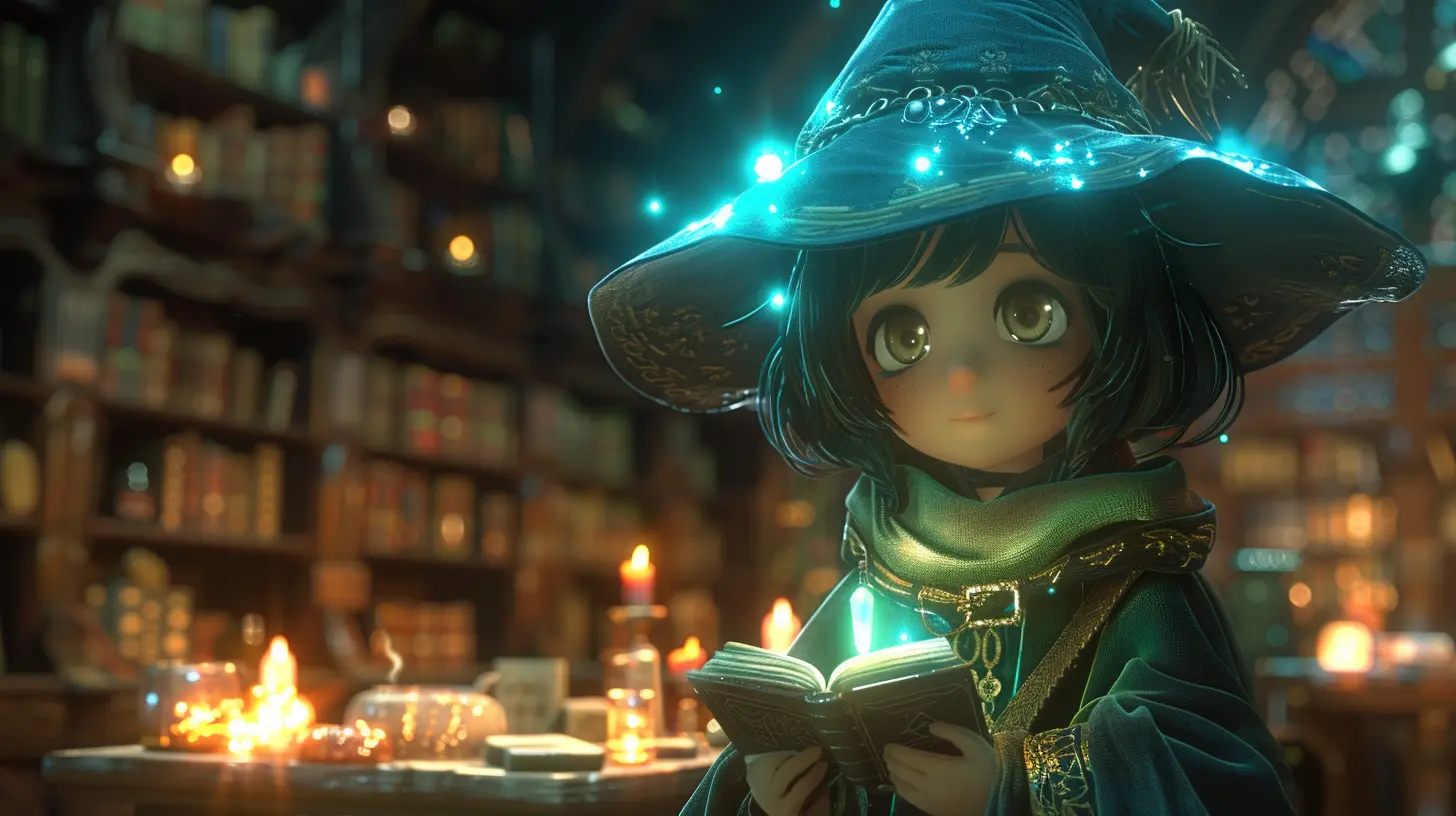
Why Do Players Love Crafting and Alchemy?
You might be wondering, “What’s the big deal about crafting? Can’t I just buy stuff from a merchant and skip all the hassle?” Well, you could, but where’s the fun in that? Here’s why players are obsessed with these mechanics:1. The Thrill of Creation
There’s something deeply satisfying about taking basic materials and turning them into something extraordinary. It’s like cooking in real life. Ever made a cake from scratch and thought, Wow, I did that? Crafting in JRPGs captures that same feeling. It makes you feel like an artist, a scientist, or maybe even a magician.2. Player Agency
Crafting systems give players more control over their experience. Instead of relying on loot drops or store inventories, you can go out and gather what you need to make the exact item you want. It’s like going to a buffet instead of ordering à la carte; you get to pick and choose what works for you.3. Replay Value
Games with deep crafting and alchemy systems almost always have insane replayability. Missed out on a rare ingredient during your playthrough? Time to dive back in! Got all the materials for a legendary sword? Let’s see how it changes your strategy this time around.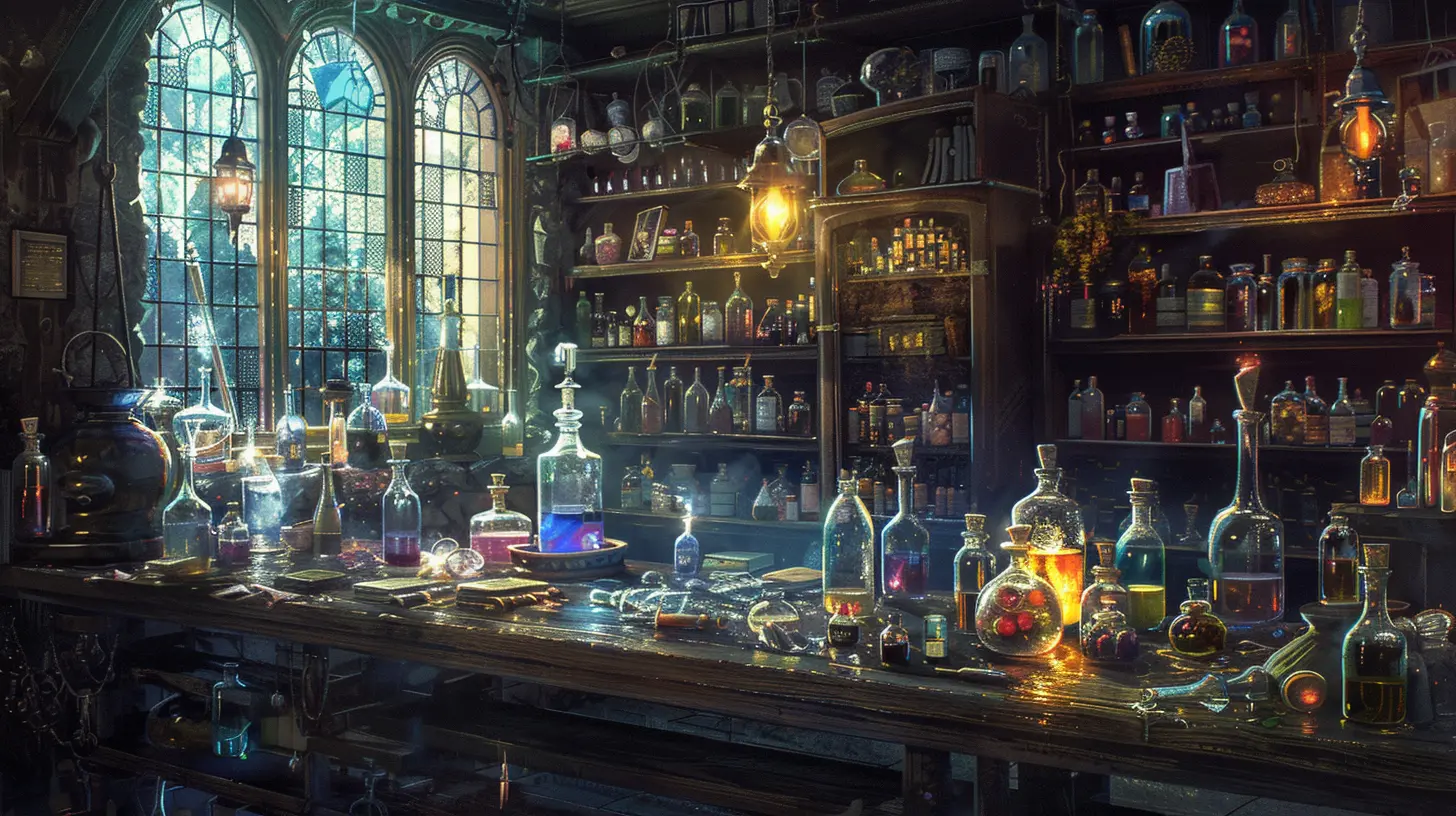
JRPGs That Nailed Alchemy and Crafting Mechanics
Not every JRPG gets crafting right, but when they do, it takes the game to a whole new level. Here are some standout examples that deserve a shoutout:1. The Atelier Series
We’ve already talked about how the Atelier series pioneered alchemy systems, but it’s worth emphasizing just how detailed these games are. Almost every material has properties that can affect your creations. Want a bomb with extra fire damage? Pay close attention to the items you combine. Atelier doesn’t just give you the tools—it asks you to think like an alchemist.2. Final Fantasy XV
Final Fantasy XV approached crafting a bit differently by tying it to combat. One of the most notable systems is magic crafting, where you can combine elemental energies (Fire, Ice, and Lightning) to create spells with effects like healing or status debuffs. It’s simple but strategic, and it adds a nice layer of customization to your playstyle.3. Dragon Quest XI
Dragon Quest XI introduced the Fun-Size Forge, a crafting mini-game where you could upgrade your weapons and armor. It wasn’t just about gathering materials; you actually had to “hammer” the item into shape using precision and timing. It made crafting more interactive and rewarding.4. Tales of Arise
This game took cooking—a crafting subcategory—to the next level. Food buffs provided by cooked meals became a vital part of combat prep. Need a boost in attack power or defense? Whip up the perfect dish before your next big fight. It’s a small touch, but it adds depth to the overall experience.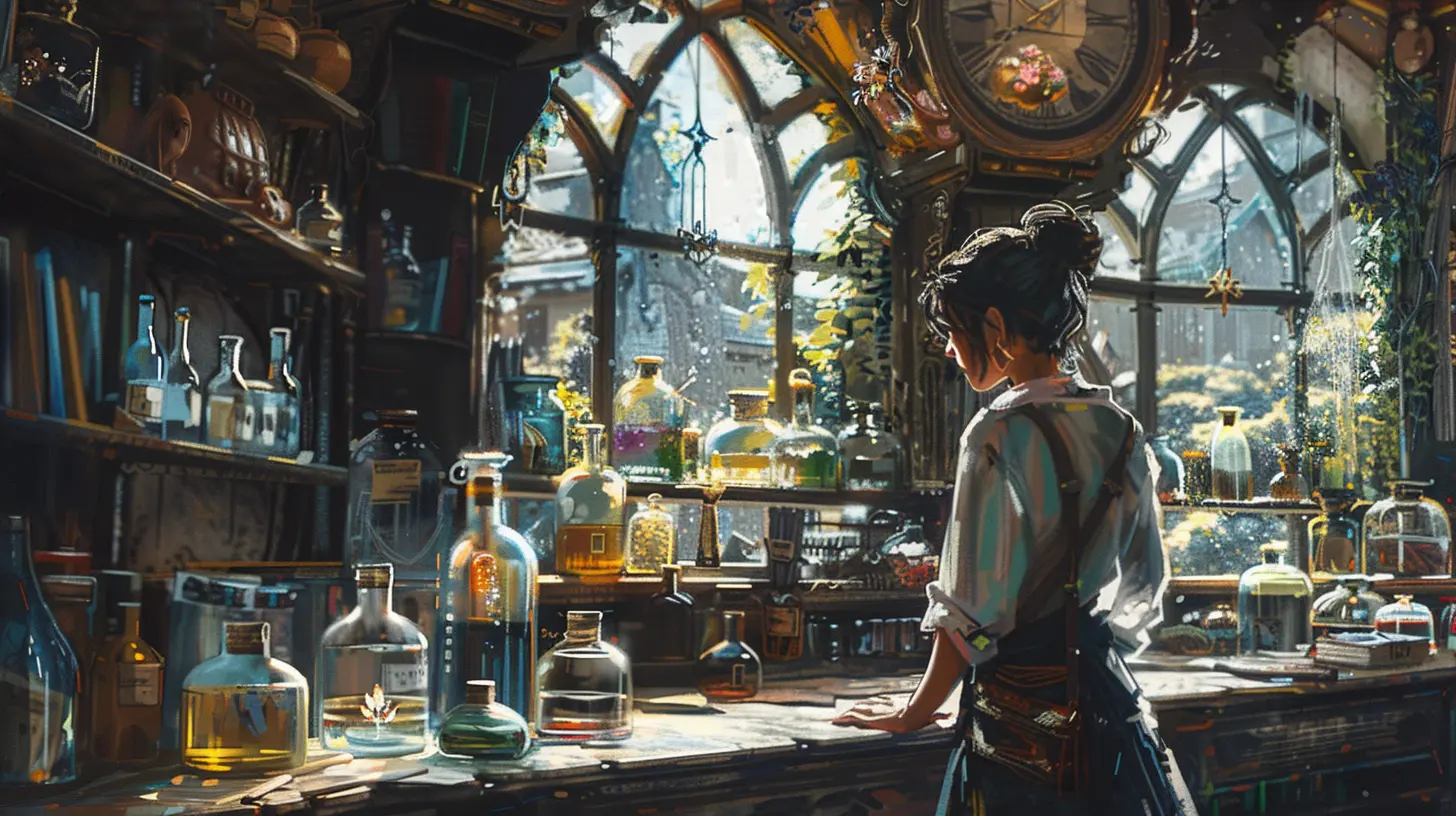
How Crafting Adds to Storytelling
Crafting isn’t just about making stuff—it can also enrich a game's story and worldbuilding. Think about it. When you’re gathering rare ingredients, what are you doing? You’re exploring the game’s world, discovering hidden locations, and learning about its lore. Alchemy and crafting systems often require you to interact with NPCs, dive into monster-filled dungeons, or scour remote corners of the map. It’s like the game is nudging you and saying, “Hey, go out there and discover something cool.”Take the Atelier games, for example. The recipes you unlock aren’t just random combinations; they’re tied to the game’s narrative. The protagonist might learn new alchemy techniques as part of their character growth, making crafting feel like a meaningful part of their journey.
Similarly, in NieR: Automata, crafting isn’t just a gameplay mechanic—it’s tied to the game’s post-apocalyptic setting. Scavenging for parts to upgrade weapons feels like a natural extension of the story. You’re not just crafting; you’re surviving.
The Future of Alchemy and Crafting in JRPGs
Given how popular crafting systems have become, they’re not going anywhere. In fact, with the rise of open-world games like Xenoblade Chronicles 3 and Final Fantasy XVI, crafting mechanics seem to be evolving further. Imagine a JRPG where crafting isn’t just restricted to items but extends to world-building—like creating towns, alliances, or even entire ecosystems.With advancements in technology, we might even see systems that allow for real-time experimentation—something like a virtual chemistry lab where you can discover entirely new recipes no one else has found. The possibilities are endless.
Are Alchemy and Crafting For Everyone?
Now, let’s be real. Not everyone loves crafting. For some, it can feel like a tedious grind, especially when rare materials are locked behind hours of collecting or RNG. But most good JRPGs balance it out by making crafting optional. You can enjoy the game without ever touching a forge or mixing potions, but if you choose to engage, the rewards are worth it.Whether you’re a crafting fanatic who loves diving into the system or a casual player who just dabbles occasionally, there’s no denying that alchemy and crafting have added depth and personality to modern JRPGs.
Final Thoughts
Alchemy and crafting have come a long way from being niche mechanics to becoming a core part of JRPG gameplay. They’ve changed the way we approach these games, offering creativity, strategy, and immersion in equal measure. Whether you’re forging a mythical sword, concocting a life-saving potion, or just cooking a tasty meal, crafting adds layers of fun and satisfaction. And with the genre constantly evolving, who knows what incredible crafting systems we’ll see next?So, the next time you smash pots for herbs or defeat monsters for rare gems, remember: you’re not just playing a game—you’re building, experimenting, and creating your own story.
all images in this post were generated using AI tools
Category:
JrpgsAuthor:

Audrey McGhee
Discussion
rate this article
4 comments
Patrick McClendon
Alchemy and crafting enrich gameplay depth in JRPGs, fostering creativity and player investment in worlds.
May 7, 2025 at 3:10 AM

Audrey McGhee
Thank you! Alchemy and crafting truly enhance player engagement and creativity, making the worlds of JRPGs more immersive and rewarding.
Rivenheart McKinnon
Great insights on the evolution of alchemy and crafting in JRPGs! These mechanics truly enrich gameplay and storytelling, adding depth and creativity to the player experience. Thank you!
April 25, 2025 at 5:05 PM

Audrey McGhee
Thank you for your thoughtful comment! I’m glad you appreciated the insights—alchemy and crafting really do enhance both gameplay and storytelling in JRPGs.
Samira McEvoy
Turning monsters into potions: JRPG magic!
April 24, 2025 at 4:02 PM

Audrey McGhee
Absolutely! Transforming monsters into potions showcases the creative depth of JRPG alchemy, blending strategy with magic to enhance gameplay.
Mira Black
Alchemy and crafting have truly transformed JRPGs, adding depth and strategy to gameplay. They encourage exploration and resource management, making each adventure more immersive. Players enjoy the satisfaction of creating unique items and discovering new recipes, which enhances engagement. This mechanic has become essential for modern JRPG experiences.
April 17, 2025 at 4:30 PM

Audrey McGhee
Absolutely! Alchemy and crafting enrich JRPGs by fostering exploration and strategic resource management, ultimately enhancing player engagement and immersion.
